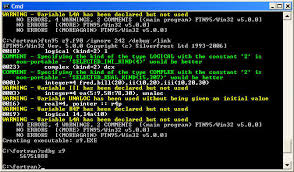command
英 [kəˈmɑːnd]
美 [kəˈmænd]
- vi. 命令,指挥;控制
- vt. 命令,指挥;控制;远望
- n. 指挥,控制;命令;司令部
- n. (Command)人名;(法)科芒
使用频率:

记忆方法
将“command”分解为两个部分来记忆:“com”可以联想到“come”(来),想象一个命令动作是某人“来”做某事,而“mand”可以联想到“mandate”,即命令或授权。这样,就可以将“command”记忆为“来授权”或“来命令”的意思。
以上内容由AI生成, 仅供参考和借鉴
中文词源
command 命令
com-, 强调。-mand, 命令,词源同mandate.
英语词源
- command
-
command: [13] Ultimately, command and commend are the same word. Both come from Latin compound verbs formed from the intensive prefix com- and the verb mandāre ‘entrust, commit to someone’s charge’ (from which we get mandate). In the classical period this combination produced commendāre ‘commit to someone’s charge, commend, recommend’, which passed into English in the 14th century (recommend, a medieval formation, was acquired by English from medieval Latin in the 14th century).
Later on, the compounding process was repeated, giving late Latin commandāre. By this time, mandāre had come to mean ‘order’ as well as ‘entrust’ (a change reflected in English mandatory). Commandāre inherited both these senses, and they coexisted through Old French comander and Anglo- Norman comaunder into Middle English commande.
But ‘entrust’ was gradually taken over from the 14th century by commend, and by the end of the 15th century command meant simply ‘order’. Commandeer and commando are both of Afrikaans origin, and became established in English at the end of the 19th century largely as a result of the Boer War. Commodore [17] is probably a modification of Dutch komandeur, from French commandeur ‘commander’.
=> commend, commodore, demand, mandatory, recommend, remand - command (v.)
- c. 1300, from Old French comander "to order, enjoin, entrust" (12c.), from Vulgar Latin *commandare, from Latin commendare "to recommend, entrust to" (see commend), altered by influence of Latin mandare "to commit, entrust" (see mandate (n.)). Replaced Old English bebeodan. Related: Commanded; commanding.
- command (n.)
- c. 1400, "order, command," from Old French comand (14c.), from comander (see command (v.)). Meaning "control, authority" is from mid-15c.
权威例句
- 1. He had authorisation from the military command to retaliate.
- 他得到军事指挥部授权,准备反击。
- 2. He didn't just command. He personally fought in several heavy battles.
- 他不仅仅发号施令,还身先士卒参加了几次激战。
- 3. I left a sergeant in command and rode forward to reconnoitre.
- 我留下一名中士指挥,自己策马前去侦察敌情。
- 4. Dividing his command, Morgan assailed both strongholds at the same time.
- 摩根派遣部队同时袭击了两个据点。
- 5. They command the respect and obedience of the armed forces.
- 他们要求武装部队尊重上级,服从指挥。
